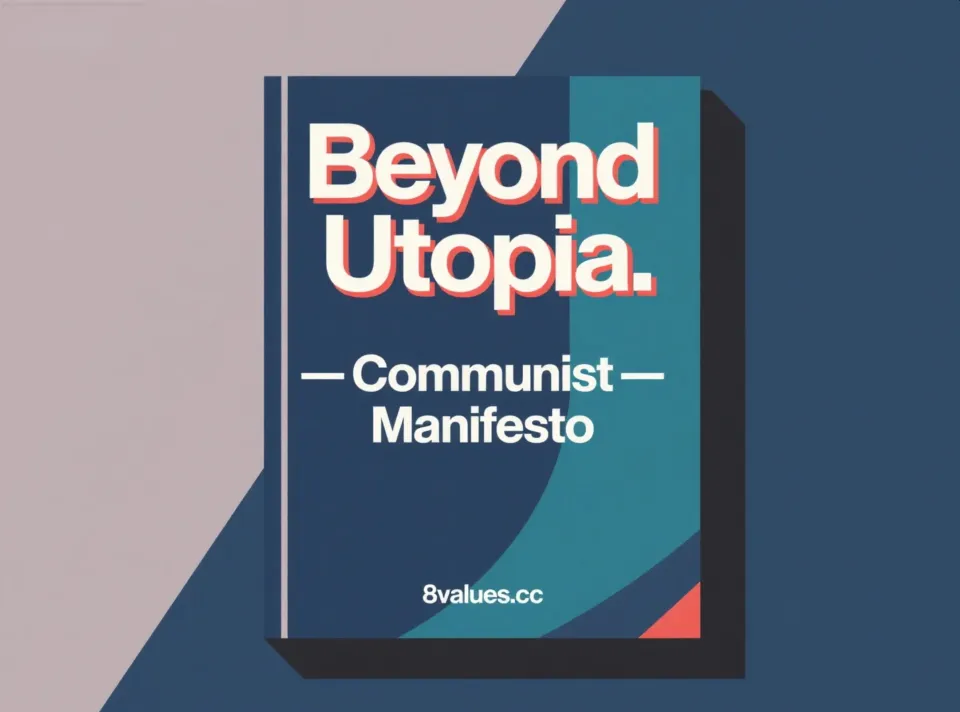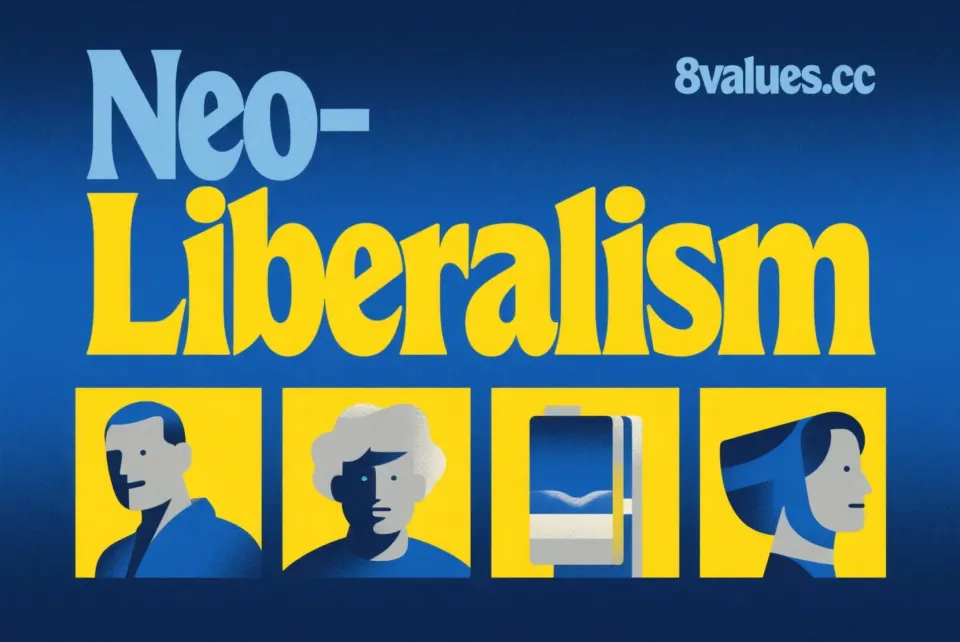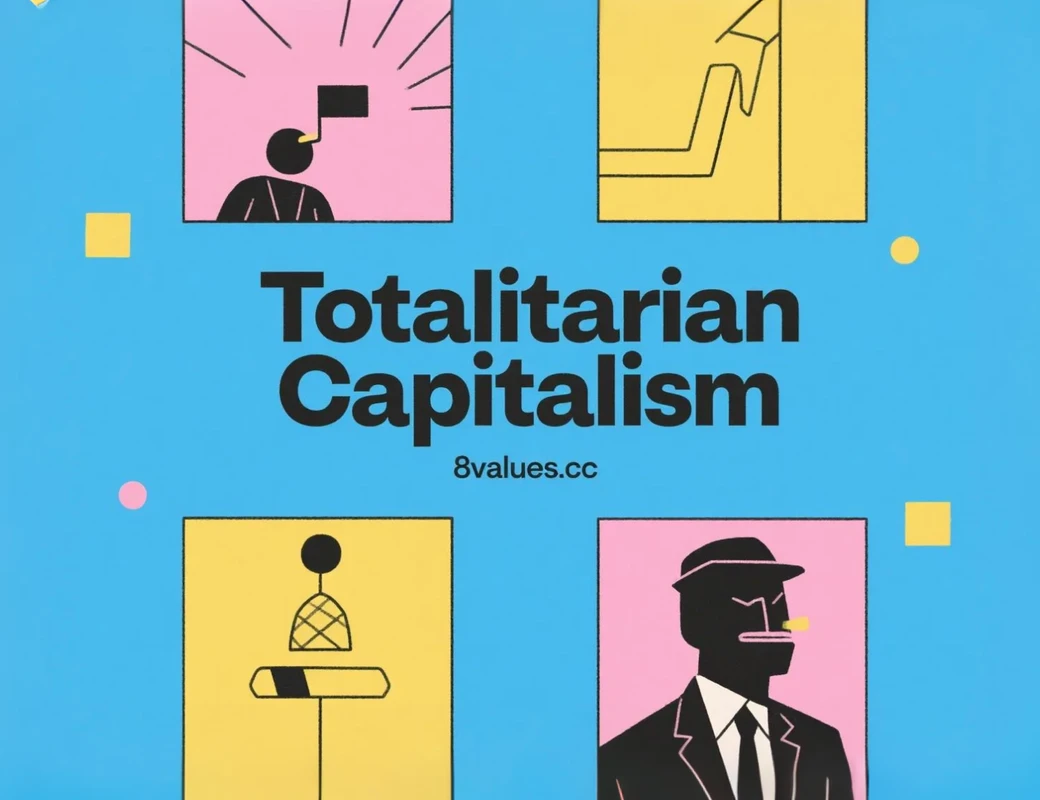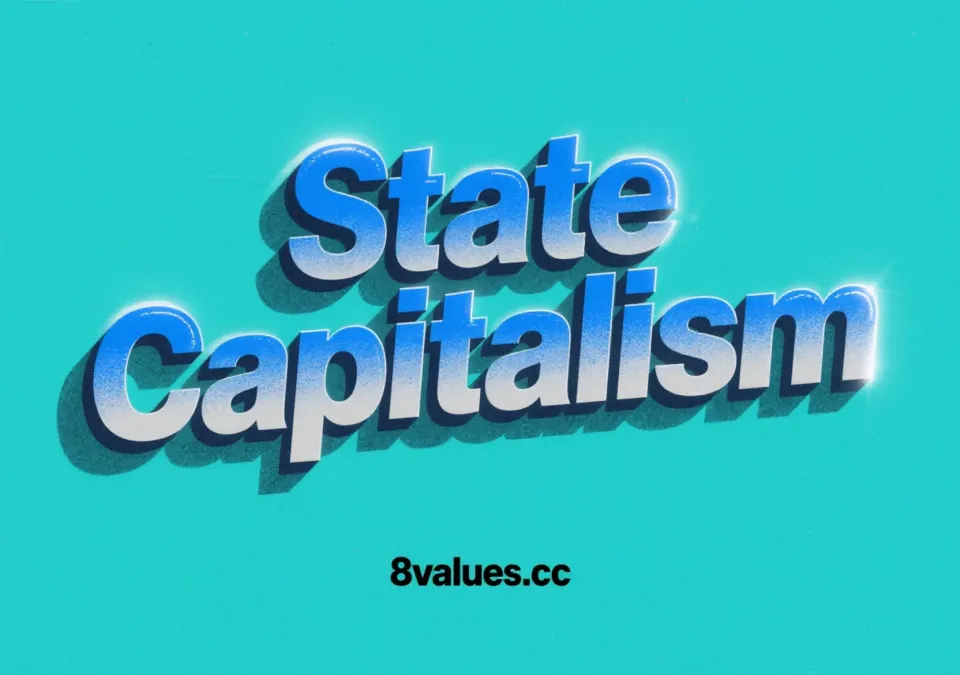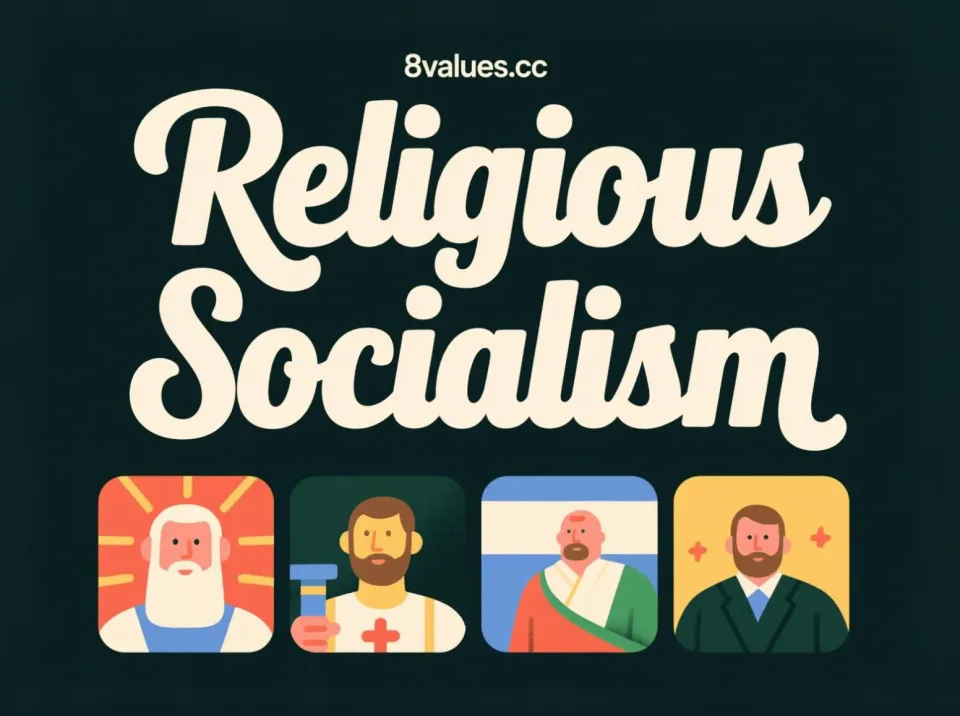Beyond Utopia: Scientific Socialism and Critical Utopia, Reactionary and Conservative Socialism—In-depth interpretation of the Communist Manifesto
This article deeply interprets the content of Chapter 3 of The Communist Manifesto, distinguishing the fundamental difference between the scientific socialism expounded by Marx and Engels from the reactionary, conservative and utopian socialist thoughts that were popular at that time, and emphasizing that scientific socialism is based on materialist analysis of economic and class relations, which is the key to understanding the path of social change. To understand your positioning in the broader political spectrum, try a free 8 Values political test.
The Communist Manifesto is a program drafted by Karl Marx and Friedrich Engels for the Communist League in 1848 and is recognized as one of the most influential political documents in human history. It not only comprehensively and systematically elaborated on the theoretical basis of scientific socialism , but also made profound and sharp criticism and distinction between various forms of socialist schools at that time in Chapter 3 "Socialist and Communist Literature".
Marx and Engels proposed that their theory did not originate from the invention or discovery of a "world reformer", but rather a general expression of the actual relationships that arise in the existing class struggle and the historical movement that takes place before our eyes. This analysis based on historical materialism brings their theory, scientific socialism , to a sharp contrast with other non-scientific socialist ideas that attempt to improve or regress.
The cornerstone of scientific socialism: historical materialism and class analysis
The core idea of scientific socialism lies in the materialist historical concept, that is, the economic mode of production and exchange, and the social structure that inevitably arises, which is the basis on which the political and spiritual history of the era depend on . Therefore, since the disintegration of public ownership in the primitive society, all history has been the history of class struggle and the struggle between the exploiting class and the exploited class.
It is precisely based on this materialist analysis of historical and economic relations that Marx and Engels were able to transcend thoughts that only saw the appearance of social ills, and clearly pointed out that if the Proletariat wants to liberate itself from the exploitation of the bourgeoisie, it must at the same time forever to liberate the entire society from exploitation, oppression and class struggle .
The Communists summarized their theory into one sentence: Abolition of private property. But they clarified that what they wanted to abolish was the bourgeois property, that is, the kind of property that was exploited by employing wage labor , rather than the property obtained by small farmers or small handicraftsmen through their own labor, because the development of large industries has been constantly eliminating this property in daily life.
The Criticism of Reactionary and Conservative Socialism: An Attempt to Conservative Systems
The Communist Manifesto divides "socialist and communist literature" into three categories, the first of which is reactionary socialism .
Reactionary Socialism
Reactionary socialism is those socialism that aims to restore old means of production and exchange , thereby restoring old property relations and old social forms. It includes the following three types:
Feudal Socialism
This trend of thought originated from the aristocratic class in France and Britain. These aristocrats were defeated by the bourgeoisie in the July Revolution and the British reform movement, and opposed modern bourgeois society by writing pamphlets.
- Motivation and Nature : The main motivation of the nobles was to safeguard the interests of their own classes , and they saw that under the rule of the bourgeoisie, a class destined to fundamentally destroy the old social system - the revolutionary proletariat .
- The ridiculous thing : in order to win the sympathy of the people, they have to pretend to ignore their own interests . When they raised the "proletarian begging bag" as a banner to win over the people, once the people joined, they saw the old feudal heralds on their butts, and then laughed and dispersed. They forgot that the modern bourgeoisie is the inevitable product of their own social forms.
- Specific manifestation : This feudal socialism has the characteristics of being half lamented and half ironic, and in political practice, it always participates in all high-pressure measures against the working class. Clerical Socialism is nothing more than a Christian variant of feudal socialism , which uses "sacred holy water" to congratulate the anger of the nobles.
Petty-Bourgeois Socialism
This trend of thought is represented by Sismondi, which was produced in a new petty bourgeoisie that has been swinging between the proletariat and the bourgeoisie in a country where modern civilization has fully developed, and has been constantly re-formed as a supplementary part of the bourgeois society.
- Insight and limitations : Petty bourgeois socialism analyzes the contradictions in modern production relations very sharply . It undoubtedly reveals the destructive consequences of machines and division of labor, the concentration of capital and land, overproduction and crisis, the inevitable demise of petty bourgeoisie and small peasants, the poverty of the proletariat, and the anarchy in production. However, in their positive purpose, what they seek, either to restore the old means of production and means of exchange, so as to restore the old ownership relations and the old society ; or to re-establish the old ownership relations that have been broken by these means and must be broken by them within the framework of modern means of production and means of exchange .
- Essence : In either case, it is both reactionary and vague . The final remarks are: in industry it is a guild system and in agriculture it is a patriarchal relationship.
German or “True” Socialism
French socialist and communist literature emerged under the rule of the bourgeoisie and expressed the struggle against this rule. When these documents were introduced to Germany, the German bourgeoisie had just begun to fight against feudal autocracy.
- The alienation of the theory : German philosophers and literati and poets enthusiastically adopted these ideas, but forgot that the social conditions of France did not move to Germany with these works. They stuffed their own abstract philosophical words behind French works, such as calling French criticism "philosophy of action", "real socialism", "socialist German science", etc.
- Essence and objective : Since this document is no longer manifested in the hands of the Germans as a struggle of one class against another, it loses all practical significance and is completely castrated . They claim that they represent not the real needs of the proletariat, but the "need of truth" and do not represent the interests of any class, but the interests of the general "substantially" .
- Reactionary : German or "real" socialism became the spokesperson for the maintenance of the German petty-bourgeois Philistine, which strives to oppose the "brutally destructive tendencies" of communism and declares that it is fair to despise all class struggles .
Conservative or Bourgeois Socialism
Conservative or bourgeois socialism reflects the desire of a part of the bourgeoisie who desire to correct social ills to ensure the continued existence of bourgeois society .
- Advocates : This faction includes economists, philanthropists, humanitarians, working class improvementists, charitable organizers, alcohol-prohibiting enthusiasts, and various small-scale improvementists .
- Core contradiction : They want all the advantages of modern society, but do not have the struggles and dangers that will inevitably arise . They hoped for a bourgeoisie without a proletariat . They demand that the proletariat stay within the scope of the existing society and abandon all concepts of hatred against the bourgeoisie.
- Form and content : This socialism attempts to devalue all revolutionary movements with administrative reforms, whose basis is the continued existence of capitalist production relations , without touching the relationship between capital and wage labor at all.
- The final summary : The true meaning of bourgeois socialism can be summarized as one sentence: " The bourgeois is for the interests of the working class ", such as: "Free trade: for the interests of the working class", "Protecting tariffs: for the interests of the working class", "Prison reform: for the interests of the working class".
This reformist trend still exists in the present, and its goal is to resolve the contradictions of capitalism and thus allow capitalism and class society to last forever.
Criticism of Utopian Socialism: Critical-Utopian Socialism
The third category is critical utopian socialism and communism , whose main representatives include Saint-Simon, Fourier and Robert Owen.
This trend of thought was born in the early days of the struggle between the proletariat and the bourgeoisie, when the proletariat was still in a very immature state.
- Awareness of ills : The founders of these institutions did see class opposition and the activities of disintegrating factors in existing societies. Their publications are filled with critical elements , attacking every principle of existing society, and providing extremely valuable material for inspiring the working class .
- Fundamental flaw : Because the class struggle was immature at that time, the proletariat had no historical initiative or independent political movement in their eyes. They did not find the material conditions for liberating the proletariat, so they did not seek liberation from historical actions , but from their personal inventions to seek new social sciences and new social laws.
- Means of improvement : They are used to appealing to the entire society, and even prefer to appeal to the ruling class , believing that once the ruling class understands their system, it will consider it the most perfect plan of the best society . They reject all political actions, especially revolutionary actions , hoping to achieve their goals through peaceful means and through the power of examples.
- Utopian nature : The actual measures they proposed - such as eliminating urban-rural antagonism, eliminating the family, eliminating the wage labor system , etc. - Although they pointed out the direction of the disappearance of class antagonism, they have a purely utopian nature because they are separated from the real class struggle and economic foundation.
- Later deterioration : With the development and clarity of modern class struggle, their fantasy position of transcending competition has lost its practical value and theoretical correctness. The believers of these systems formed reactionary sects , who adhered to the founder's original viewpoint and tried their best to ease class struggle and reconcile class opposition .
The "transcendence of fantasy" of scientific socialism: a revolutionary path based on materialism
Marx and Engels called their theoretical system scientific socialism precisely in order to distinguish it from all the above-mentioned thoughts that try to avoid, cover up or reverse the trend of history.
| feature | Scientific Socialism | Reactionary/Conservative Socialism | Critical Utopian Socialism |
|---|---|---|---|
| Theoretical basis | Historical materialism and class struggle theory | Request to restore the old system or class reconciliation | The invention of appealing to reason and the new social laws |
| Treat capitalism | Recognize its historical revolutionary nature and point out its inherent contradictions and inevitable destruction | Totally deny or only seek administrative reforms to stick to existing society | Sharply criticizes its shortcomings, but lacks scientific understanding of its historical process |
| Treat political action | Advocate the proletariat to seize power and carry out revolutionary reforms | Reject revolutionary actions and participate only in high pressure or administrative reforms | Reject all political and revolutionary actions and advocate peaceful means |
| Historical direction | Looking forward to the future "Free Man Union" and completely eliminate class opposition | Try to restore old social relations or maintain status quo | Propose the "fantasy picture" of the future society, but does not have the material conditions to achieve |
Practical orientation of scientific socialism
Unlike utopian socialists who are addicted to the "fantasy picture" that depicts the future, Marx and Engels are committed to analyzing the material conditions required to achieve proletarian liberation. The first step in the proletarian revolution is to elevate the proletariat to a ruling class and strive for democracy .
Although the Communist Manifesto admits in a later preamble that some transitional measures (such as the top ten proposed at the end of Chapter 2) may require different wording today, because practical experience proves that "the working class cannot simply grasp the ready-made state machine and use it to achieve its own goals" , its basic principle, namely, transforming society through revolutionary actions, is still regarded as a relevant tool for analyzing the ills of modern capitalism and the path of human development. For example, after the global financial crisis broke out in 2008, sales of the Communist Manifesto and Marx's Das Kapital both rose sharply.
What scientific socialism reveals is not only the drawbacks of capitalism (for example, the debt and occupational insecurity faced by the modern working class in the economic crisis), but also the fundamental way to solve these drawbacks: to carry out thorough social changes through the guidance of historical materialism , rather than relying on improvement or regressing to the idealized state of the past.
_If you want to have a deeper understanding of the difference between your political beliefs and these ideologies, you can further explore through the 8values political values tendency test . _
Summary: The eternal theme of class struggle and the victory of science
The greatness of The Communist Manifesto is that it brings early socialist thought back to the scientific level from the utopian level. It abandons reactionary socialism in an attempt to restore old ownership fantasy, exposes the hypocrisy of conservative bourgeois socialism in upholding capitalist rule, and transcends the limitations of utopian socialism in the appeal of morality and rationality alone.
Through materialist analysis of economic modes of production and class relations, Marx and Engels pointed out a clear path for the proletariat: the liberation of the proletariat must be the action of the proletariat itself , and must be achieved through class struggle and political action . This is the fundamental difference between scientific socialism and all non-scientific thoughts.
Want to learn more about your political leanings? Please try our 8values political orientation test and explore a detailed interpretation of all 8values results ideology . In addition, you can find more articles on political theory and its real-life applications in our blog .
